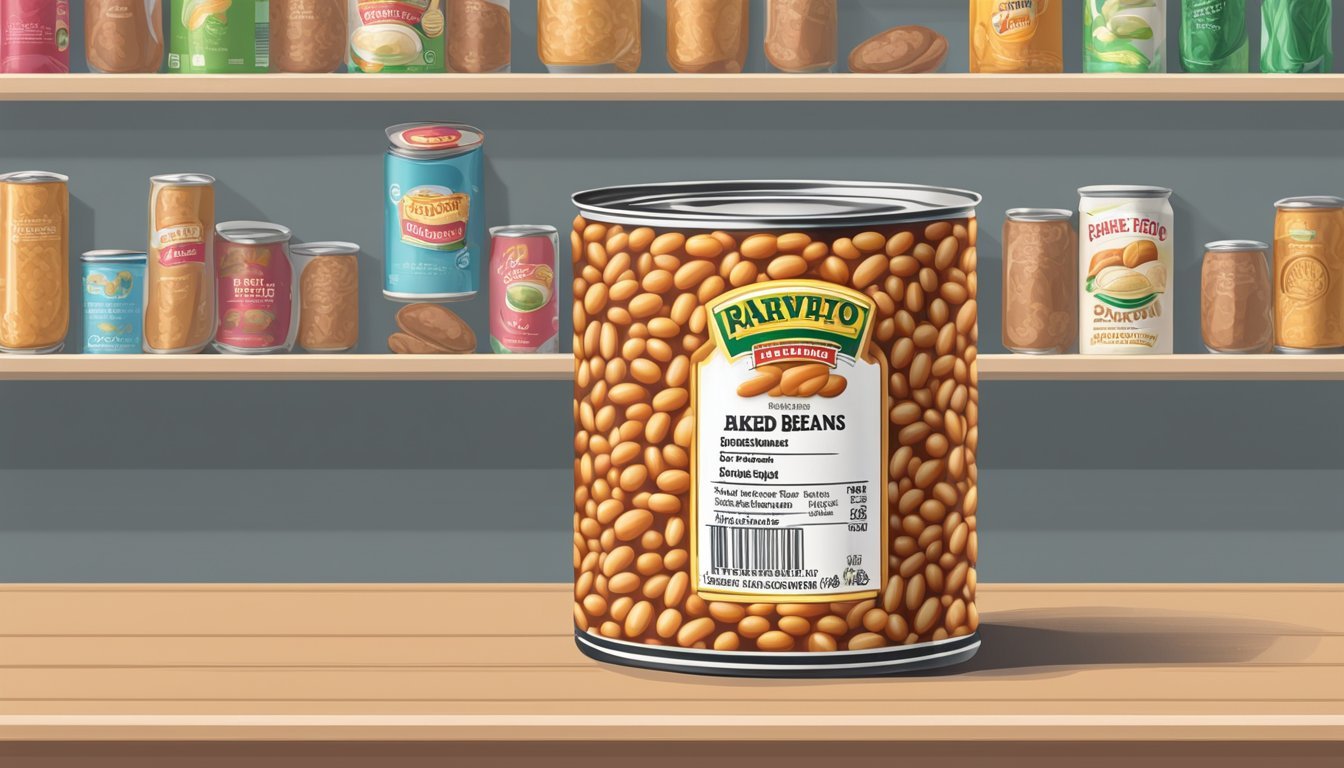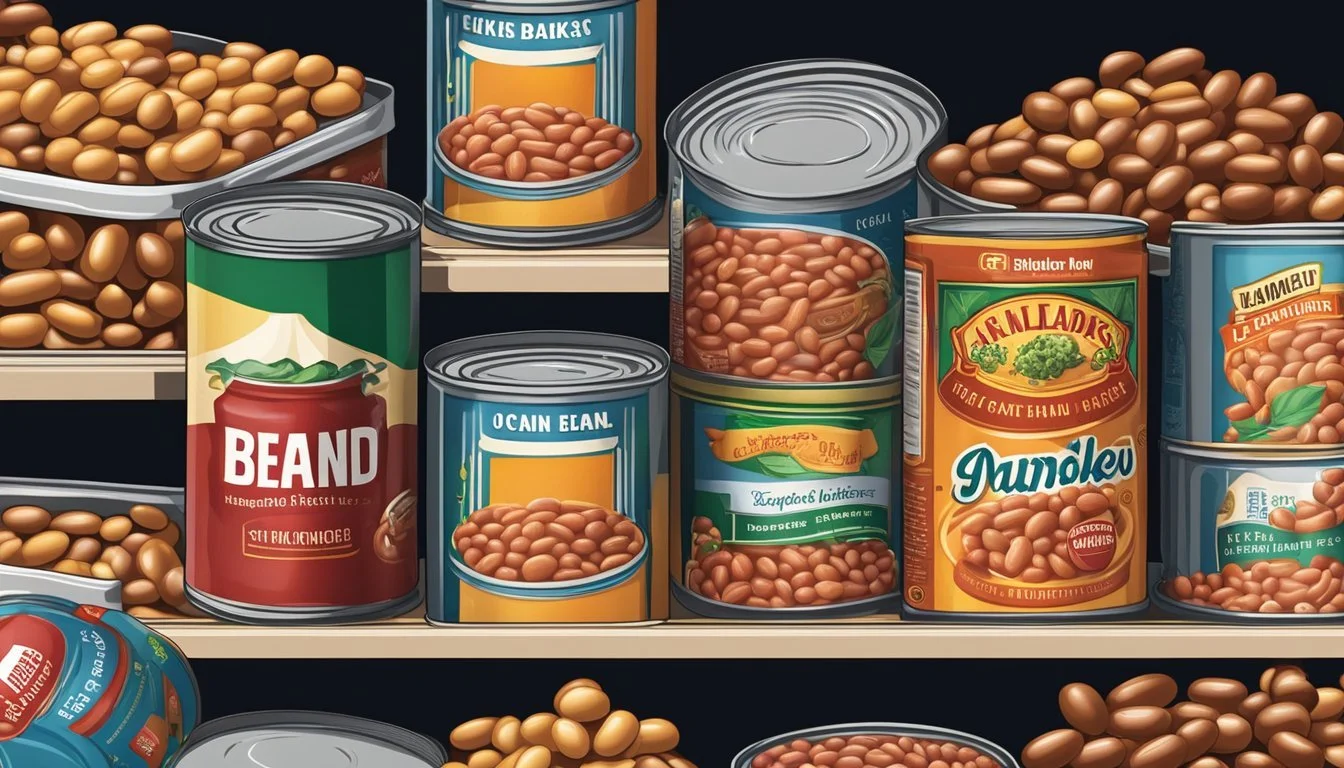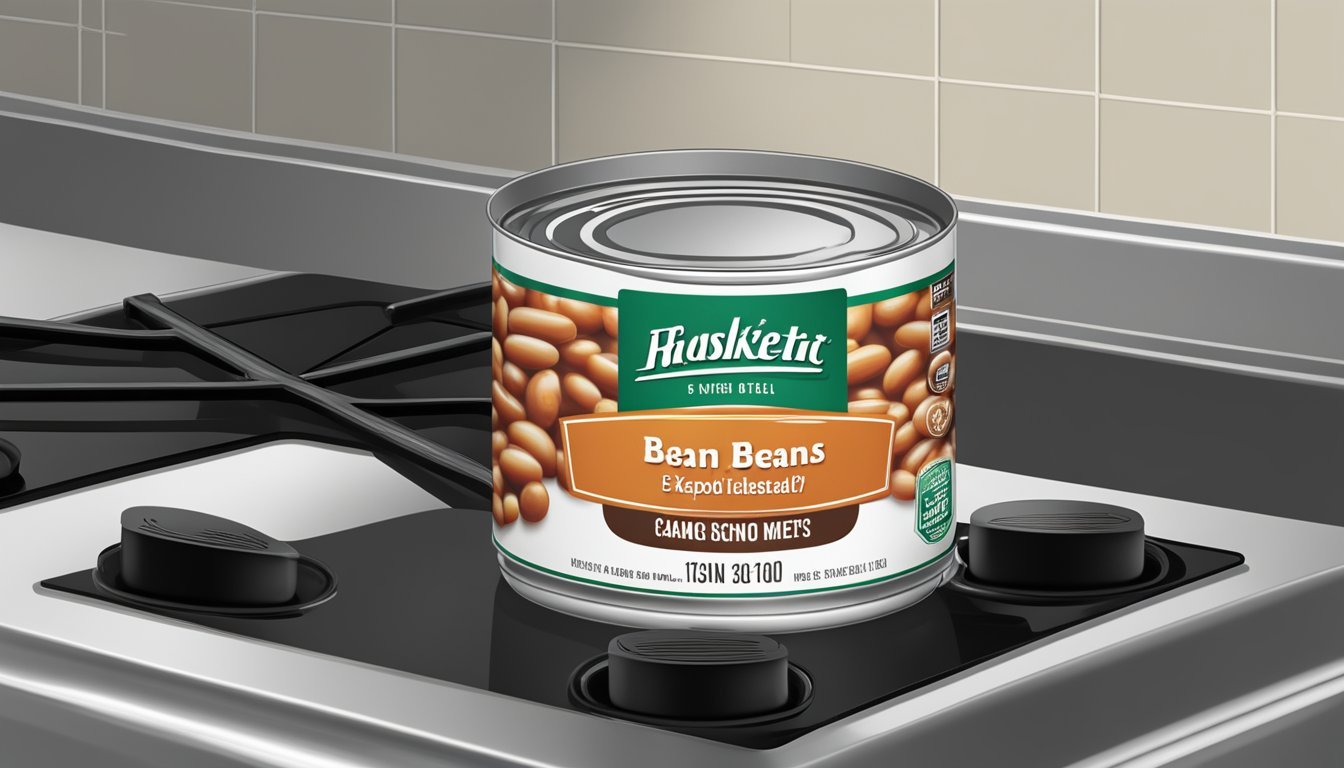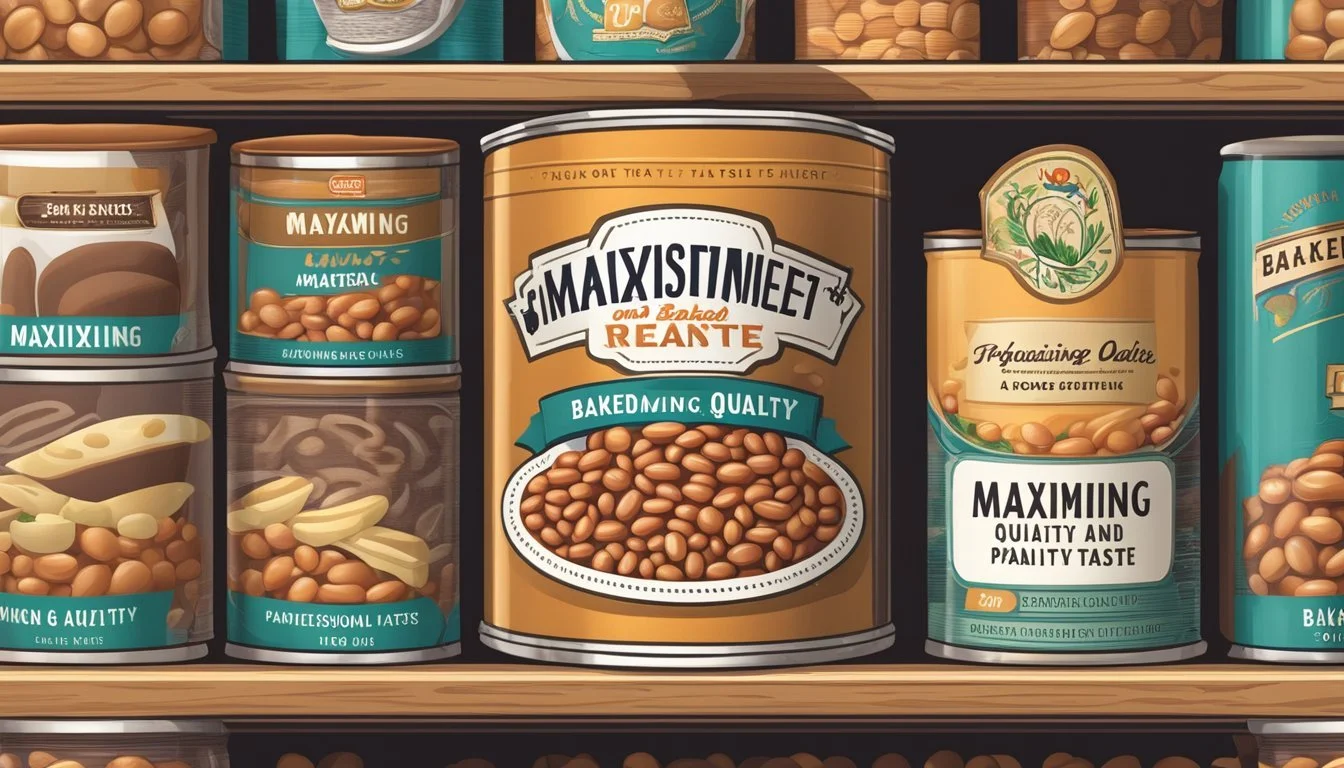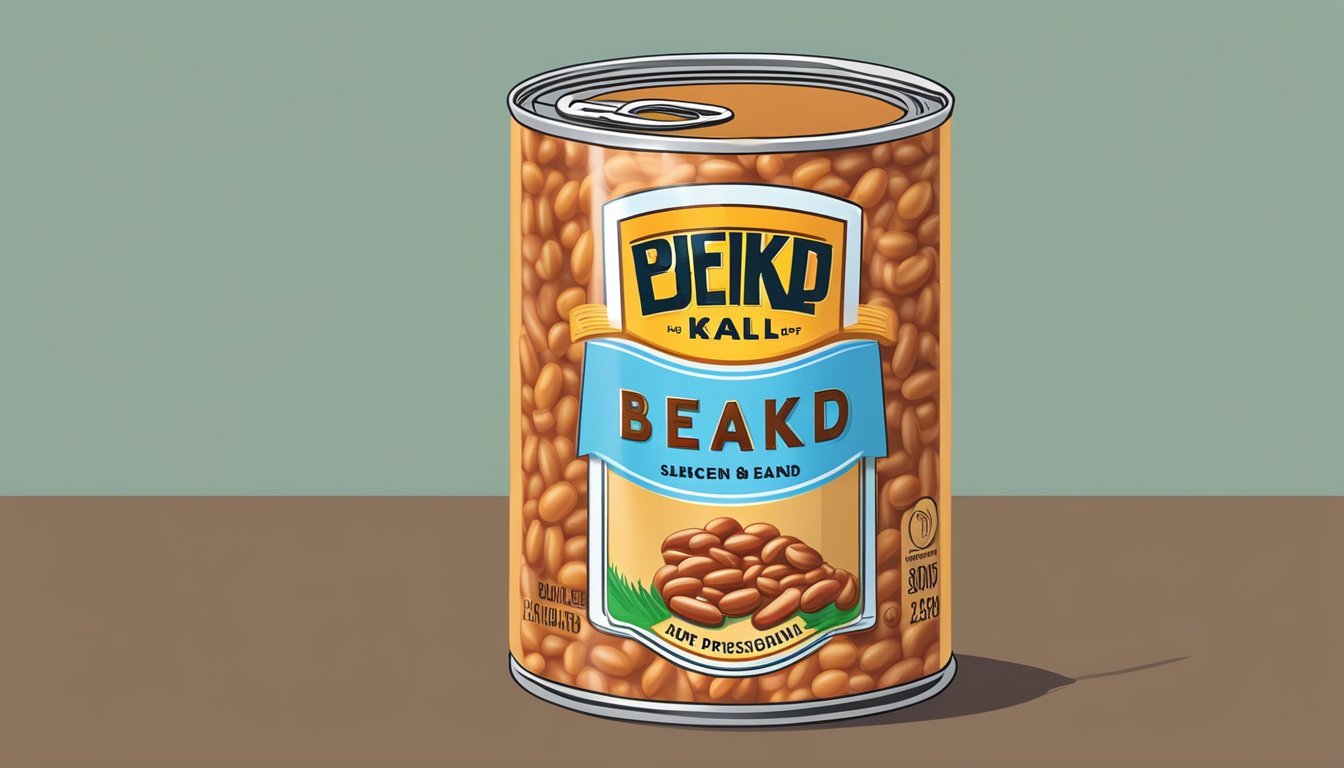How Long Do Baked Beans Last?
Shelf Life and Storage Tips
Baked beans are a popular staple with a reputation for their long shelf life and versatility in various dishes. When stored properly, unopened canned baked beans can last for years beyond their printed date, maintaining their quality and safety. Factors influencing the longevity of baked beans include the type of packaging, storage conditions, and whether they are homemade or commercially canned.
Once opened or cooked, baked beans’ shelf life shortens significantly. They need to be refrigerated and are best consumed within a few days to ensure taste and prevent foodborne illness. Recognizing signs of spoilage, such as an off smell, discolored beans, or a bulging can, is crucial to food safety and should not be ignored. To maximize longevity, storing baked beans in airtight containers and keeping them refrigerated is recommended.
Understanding Baked Beans
Baked beans are a staple in many diets around the world due to their nutritional value and versatility in recipes. They are often composed of haricot beans (how long do haricot beans last?), also known as navy beans (how long do navy beans last?), submerged in a sauce that commonly includes ingredients such as tomato, molasses (how long does molasses last?), brown sugar, bacon, and onion.
Homemade Baked Beans: For those preparing baked beans at home, the ingredients can be tailored to personal preference. Often starting with dried beans, the cooking process includes a slow bake, often with a variety of savory and sweet seasonings, resulting in a flavorful dish rich in fiber and other nutrients.
Canned Baked Beans: Canned baked beans offer convenience and a long shelf life due to the preservation methods used in the canning process. These beans have been pre-cooked and are ready to eat or heat, making them a quick addition to meals.
Nutritional Profile: Baked beans contribute significantly to a diet. With a substantial amount of fiber, they aid in digestion. Each serving contains vital nutrients such as protein, iron, and complex carbohydrates, while generally being low in fat.
Key Points:
Baked beans can be homemade or store-bought.
Key ingredients: tomato sauce, molasses, brown sugar, bacon, and onion.
Rich in nutrition: High in fiber, protein, and essential minerals.
Canned baked beans benefit from an extended shelf life due to the canning process.
When stored properly, baked beans can be a durable food option, with canned varieties lasting from several months to a few years. Refrigeration is essential for maintaining the quality of opened canned baked beans as well as leftovers from a homemade batch.
Shelf Life Fundamentals
The shelf life of baked beans is influenced by various factors, including storage methods and whether the beans are homemade or commercially canned. Knowing the expiration date is crucial to understanding when to consume or dispose of the product for safety and quality purposes.
Factors Affecting Shelf Life
Storage Conditions: Baked beans last longer when stored in a cool, dry place. If the cans are undamaged and kept away from extreme temperatures, their content can remain safe to eat for years.
Packaging Type: The shelf life of canned baked beans typically extends from 2-5 years, whereas homemade baked beans, due to lack of commercial sterilization, have a shorter shelf life.
Opening the Can: Once opened, the shelf life decreases dramatically. Baked beans should be refrigerated in a covered glass or plastic container and consumed within 3-5 days.
Expiration Date Significance
Printed Date: Often, the shelf life of baked beans is denoted by the expiration date found on the label; this date is an indicator of quality, not safety. Label Consistency: Labels like "best by" and "use by" can offer guidance but consuming the product shortly after the date can still be safe if it has been stored properly. It's essential to examine the beans for signs of spoilage regardless of the date.
Unopened Baked Beans
When it comes to the longevity of unopened baked beans, the key for maintaining their best quality is proper storage conditions. Now, let’s look at the specifics of how to store these beans before opening.
Pantry Storage
Unopened canned baked beans thrive in a cool, dry place away from direct sunlight and heat. These conditions help ensure the best quality of the beans. Typically, a pantry meets these criteria, making it an ideal storage spot.
Ideal conditions for pantry storage:
Cool temperatures (below 85°F or 30°C)
Low humidity
Away from light sources
Canned Beans Expiry
The expiry date on a can of baked beans is not the final say on their safety for consumption. If stored properly in the pantry, unopened canned baked beans can last well past this date.
Storage Condition Expected Shelf Life for Best Quality Cool & Dry Pantry 2 to 5 years
After the expiry date, canned baked beans (unopened) can be safe to eat but the quality may decline. One should inspect the can for any signs of damage or swelling before use, as these can indicate potential spoilage.
Opened Baked Beans
Once the can of baked beans is opened, the contents should be promptly refrigerated if not consumed entirely. Proper storage is vital to maintain their quality and safety.
Refrigerator Storage
Opened baked beans should be immediately transferred to an airtight container before being placed in the refrigerator. This method prevents contamination and preserves the flavor and quality of the beans. They typically last about 3-4 days in the fridge. It's important to ensure that the beans are covered with their sauce to keep them moist and flavorful.
Signs of Spoilage
The key indicators of spoilage in opened baked beans include a change in color, flavor, or texture. Any unpleasant or sour smell is a clear sign that the baked beans should not be consumed. Visible mold, especially on the surface of the sauce, or a can that is leaking, bulging, or damaged in any way, are all indicators that bacteria may have compromised the product and it should be disposed of immediately.
Freezing and Defrosting
When it comes to extending the shelf life of baked beans, freezing is a practical solution. Properly freezing and thawing ensure beans retain flavor and texture.
How to Freeze Baked Beans
Steps to freezing baked beans:
Cool: Allow the baked beans to cool to room temperature.
Portion: If convenient, portion the beans into serving sizes.
Container: Transfer the beans into a freezer-safe container, leaving room for expansion.
Seal: Ensure the container is airtight to prevent freezer burn.
Label: Mark the container with the date to monitor how long the beans have been frozen.
It is recommended that one does not leave the beans at room temperature for more than an hour to prevent bacterial growth. Baked beans can maintain quality in the freezer for up to 6 months.
Thawing Process
Guidelines for defrosting baked beans:
Refrigerator: Thaw the beans slowly in the refrigerator, ideally overnight.
Reheat: To reheat, transfer beans to a microwave-safe dish or heat them on the stove.
Note: The beans should remain at a safe temperature during the thawing process, avoiding the danger zone of 40°F to 140°F where bacteria can multiply rapidly. It is not recommended to refreeze baked beans once they have been thawed.
Reheating Baked Beans
When one needs to reheat baked beans, it's essential to maintain their texture and flavor. The following procedures ensure safe reheating while retaining the beans' quality.
Safe Reheating Procedures
To safely reheat baked beans, one can employ different kitchen appliances like a stovetop or a microwave. Here's a breakdown of each method:
Stovetop Method:
Place the baked beans in a saucepan.
Heat them on a low to medium setting, stirring occasionally.
Allow them to heat until they are hot throughout, which typically takes about 10 minutes.
Using the stovetop allows for easy stirring, which can help the beans reheat evenly.
Microwave Method:
Transfer the baked beans to a microwave-safe container.
Cover it with a microwave-safe lid or a damp paper towel.
Heat on high for about 1-2 minutes, then stir.
Continue to heat in 30-second intervals, stirring each time, until hot.
The microwave is a quick reheating option, but one should be diligent to stir the beans for even warming.
Regardless of the method chosen, it is important to let the baked beans cool down slightly before serving to ensure they reach a safe, edible temperature.
Food Safety Considerations
When it comes to food safety, proper storage and understanding spoilage are critical in ensuring that baked beans remain safe for consumption. Baked beans must be stored correctly to prevent bacterial growth and spoilage.
Avoiding Contamination
One must always transfer baked beans to an airtight container after opening to minimize the risk of contamination. Baked beans should be kept cool, specifically in the fridge at temperatures below 40°F (4°C) to inhibit the growth of bacteria. The USDA strongly recommends prompt refrigeration of perishable food within two hours of cooking or opening. Surfaces and utensils that come into contact with baked beans should be clean to prevent the introduction of harmful pathogens.
Do: Transfer to an airtight container.
Don't: Leave them at room temperature for over two hours.
Storage tip: Use clear, labeled containers with the date of storage.
Understanding Spoilage
Spoilage of baked beans can occur due to factors such as time, temperature, and exposure to air. They typically last 3-5 days in the fridge after opening if stored promptly and properly. Indicators of spoilage include sour smell, discoloration, and mold growth. Preservatives in canned beans can extend shelf life, but they do not prevent spoilage once the can is opened. Consumers should discard any baked beans that have been stored beyond this timeframe or exhibit signs of spoilage.
Indicators: Odor, visual changes, mold.
Action: Discard expired or spoiled baked beans.
Note: Even with preservatives, opened beans are perishable.
Maximizing Quality and Taste
To ensure baked beans retain their delectable taste and desirable texture, adhering to proper storage methods is crucial. Preserving the flavor and quality of baked beans enhances the overall dining experience.
Best Practices for Storage
In the Pantry:
Unopened canned baked beans: Store in a cool, dry place and they should maintain quality for 2-5 years.
Check the expiration date as a general guideline.
In the Refrigerator:
Opened canned or homemade baked beans: Place in an airtight container to keep for 3-4 days.
In the Freezer:
For longer storage, freeze baked beans in a freezer-safe container:
Leave space at the top for expansion.
Use within 6 months for best quality.
Transferring baked beans to appropriate containers prevents spoilage and helps maintain taste and texture when they are reheated.
Evaluating Taste and Quality
When assessing baked beans for consumption, use these criteria:
Taste: Beans should maintain a balance of sweetness and savory notes from ingredients like meat or onions.
Texture: Beans should be soft, yet hold their shape, and not be mushy.
Flavor: The sauce should be rich and cohesive, without any hint of rancidity.
Appearance: There should not be any discoloration or mold, indicating spoilage.
Reheating in a saucepan gently can help in retaining the beans' quality, as quick or high-heat methods may alter their texture. If the flavor or texture seems off, it's best to discard the beans to avoid any food-related illnesses.
Special Circumstances
In storing baked beans, certain unusual situations may arise that impact shelf life and safety. These can range from improper canning to unexpected changes in storage conditions.
Handling Unusual Situations
Canning Defects: If the can shows any sign of rusting, denting, or swelling, this indicates potential canning defects, which can compromise the integrity of baked beans. Consumers should discard such cans to prevent health risks.
After Opening: Once opened, any remaining baked beans must be transferred to an airtight container and refrigerated. They should be consumed within 3-4 days to ensure safety and freshness.
Refrigeration Failures: In the event of a refrigerator malfunction, baked beans should remain safe to consume if the time at temperatures above 40°F (4°C) has been less than two hours. Beyond that, they should be discarded.
Prolonged Counter Storage: Baked beans should not be stored on the counter after opening; immediate refrigeration is crucial to prevent bacterial growth.
Prepared Baked Beans: For homemade or prepared baked beans, ensure they are stored in a freezer-safe container when freezing, and consume them within 6 months for optimal quality.
Unopened Cans: Unopened cans of baked beans can last for years beyond their marked date provided they are undamaged and stored in a cool, dry place. However, quality is best if used before the date indicated on the can.
FAQs
In this section, the reader will find reliable answers to frequently asked questions about how long baked beans last, including tips on the optimal storage methods and shelf life details for both homemade and store-bought varieties.
Common Questions Answered
How should one store baked beans to maintain their quality?
Baked beans, whether homemade or store-bought, should be stored in a cool, dry place if unopened. Once opened, they must be kept in the refrigerator in an airtight container to preserve freshness. For longer storage, baked beans can be frozen.
What is the shelf life of canned baked beans?
Unopened canned beans last between 2 to 5 years when stored properly in a pantry. After opening, beans retain quality for 3 to 4 days in the refrigerator.
Can leftovers be reheated in the microwave?
Yes, leftover baked beans can be reheated in the microwave. Transfer them to a microwave-safe container, cover to prevent splattering, and heat until warm throughout.
Is it safe to freeze baked beans?
Freezing is indeed a viable option for extending the life of baked beans. They can be frozen for up to 6 months. However, it's important to store them in freezer-safe containers or bags.
How long do homemade baked beans last compared to canned beans?
Homemade baked beans should be consumed within 3 to 4 days when stored in the refrigerator. This is similar to the duration that opened canned baked beans will last when refrigerated.
Does the type of bean affect the shelf life of baked beans?
Generally, the type of bean does not significantly affect the shelf life. It's the storage method and whether beans are canned with preservatives that play a more crucial role in determining longevity.

